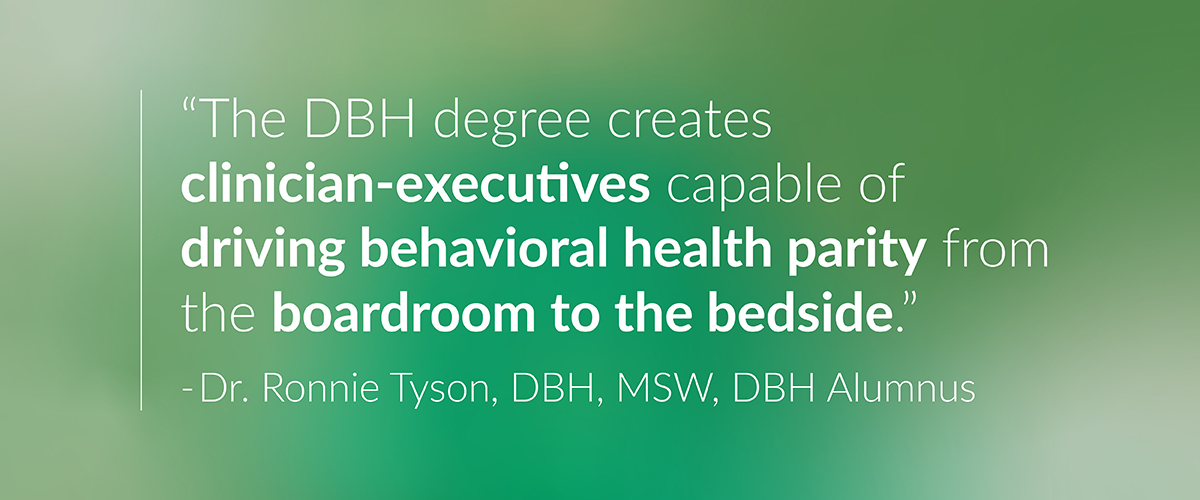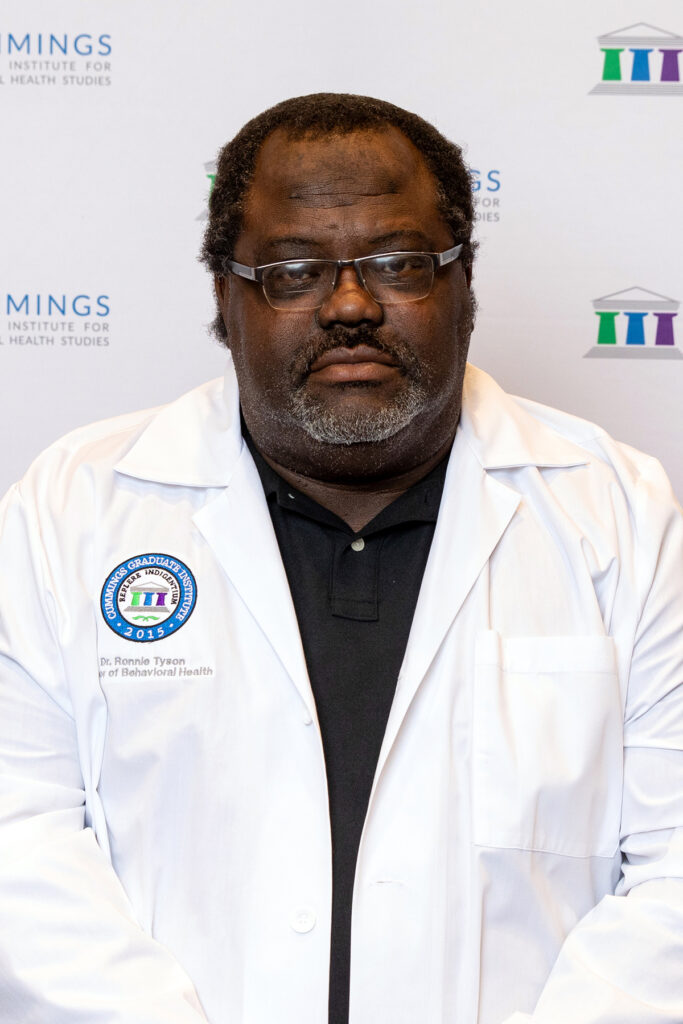 DBH alumnus drives innovation, equity, and systems change in behavioral healthcare.
DBH alumnus drives innovation, equity, and systems change in behavioral healthcare.
 In the evolving landscape of behavioral health, few leaders embody the integration of lived experience, innovation, and policy leadership quite like Dr. Ronnie Tyson, a Doctor of Behavioral Health (DBH) graduate from Cummings Graduate Institute for Behavioral Health Studies (CGI). As Executive Director of Flint Odyssey House, Inc. and Mid-Central Regional Vice President for the Association for Addiction Professionals (NAADAC), Dr. Tyson’s work continues to bridge the space between community-based care and national reform.
In the evolving landscape of behavioral health, few leaders embody the integration of lived experience, innovation, and policy leadership quite like Dr. Ronnie Tyson, a Doctor of Behavioral Health (DBH) graduate from Cummings Graduate Institute for Behavioral Health Studies (CGI). As Executive Director of Flint Odyssey House, Inc. and Mid-Central Regional Vice President for the Association for Addiction Professionals (NAADAC), Dr. Tyson’s work continues to bridge the space between community-based care and national reform.
“My journey toward this role has been shaped by 28 years of service in community-based behavioral health and recovery informed leadership,” Dr. Tyson shared. “As Executive Director of Flint Odyssey House, I’ve had the privilege of working at the intersection of policy, practice, and lived experience, where human transformation meets system design.”
Now, as a regional leader with NAADAC, Dr. Tyson is using that experience to influence systems that affect behavioral health professionals and communities nationwide.
“Becoming NAADAC’s Mid-Central Regional Vice President represents both a continuation and an expansion of that work,” he said. “It provides a platform to elevate the voices of providers and communities across the Midwest and to advocate for parity, prevention, and humanistic integration across our national behavioral health systems.”
Bringing Systems Thinking to Leadership
Dr. Tyson credits the DBH program at CGI with transforming the way he leads and thinks about change.
“The DBH program at Cummings Graduate Institute profoundly shaped my approach to leadership by grounding it in systems thinking, implementation science, and human-centered design,” he explained. “It taught me to view leadership not merely as positional authority, but as a process of knowledge creation and collective learning.”
That mindset drives his current priorities for NAADAC:
“My primary goals are to strengthen regional collaboration, foster professional development pipelines for addiction counselors, and advocate for policy alignment between state and federal systems,” Dr. Tyson noted. “Specifically, I aim to advance the integration of behavioral health and primary care across the Mid-Central Region, enhance workforce pathways through accredited apprenticeships and certification alignment, and promote data-driven quality improvement using frameworks like ASAM’s 4th Edition and NAADAC’s professional competencies.”
The Role of DBHs in Systemic Reform
For Dr. Tyson, the DBH degree represents far more than a credential, it’s a blueprint for systems-level impact.
“The DBH degree is uniquely positioned to bridge the long-standing gap between clinical innovation and systems reform,” he said. “It equips leaders with the ability to translate evidence-based practices into sustainable operational models—what we might call ‘practice-based evidence.’”
This ability, he added, allows DBHs to design frameworks and financing models that drive equity and outcomes.
“In essence, the DBH degree creates clinician-executives capable of driving behavioral health parity from the boardroom to the bedside.”
A Message to Future DBHs
When asked what advice he has for those pursuing leadership in behavioral health, Dr. Tyson’s answer reflects both humility and wisdom.
“Leadership begins with intentionality and self-awareness. My advice is to remain grounded in purpose, understand the ‘why’ behind your work,” he said. “Seek to lead collaboratively, to transform through empathy, and to apply your learning in ways that create measurable impact.”
Looking ahead, his focus remains clear.
“My vision is a behavioral health ecosystem that not only treats disorders but cultivates human flourishing, what Abraham Maslow described as eupsychian management, or the science of helping people become their best selves.”
Learn more about the Doctor of Behavioral Health program and how graduates like Dr. Tyson are transforming healthcare leadership.






























